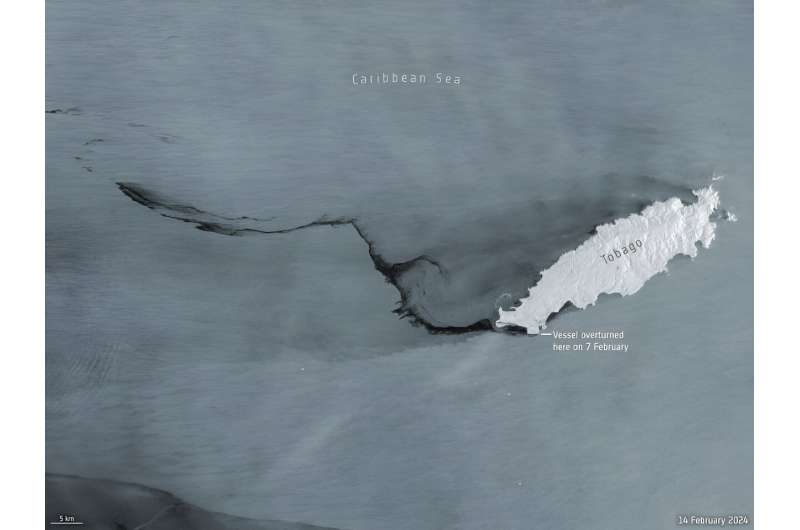
Before and after satellite images from the Copernicus Sentinel-1 mission show the scale of the oil spill that occurred off the shores of Trinidad and Tobago’s coastline earlier this week. The ship, identified as The Gulfstream, ran aground and overturned off the southern shores of Tobago Island.
The final image of the animation, captured on 14 February at 23:18 CET (22:18 UTC), shows the oil spill has traveled more than 160 km westwards. The spill is moving out of Trinidad and Tobago’s marine area and into Grenada’s southernmost marine area—which could affect neighboring Venezuela.
Satellite radar is particularly useful for monitoring the progression of oil spills because the presence of oil on the sea surface dampens down wave motion. Since radar basically measures surface texture, oil slicks show up well—as black smears on a gray background.
Copernicus Sentinel data are being used for the International Charter Space and Major Disasters activation requested by national authorities (Office of Disaster Preparedness and Management) who are coordinating satellite imagery to facilitate the timely and effective monitoring to mitigate environmental impact.
Provided by
European Space Agency
Image: Sentinel-1 captures Tobago oil spill (2024, February 16)
retrieved 17 February 2024
from https://phys.org/news/2024-02-image-sentinel-captures-tobago-oil.html
part may be reproduced without the written permission. The content is provided for information purposes only.